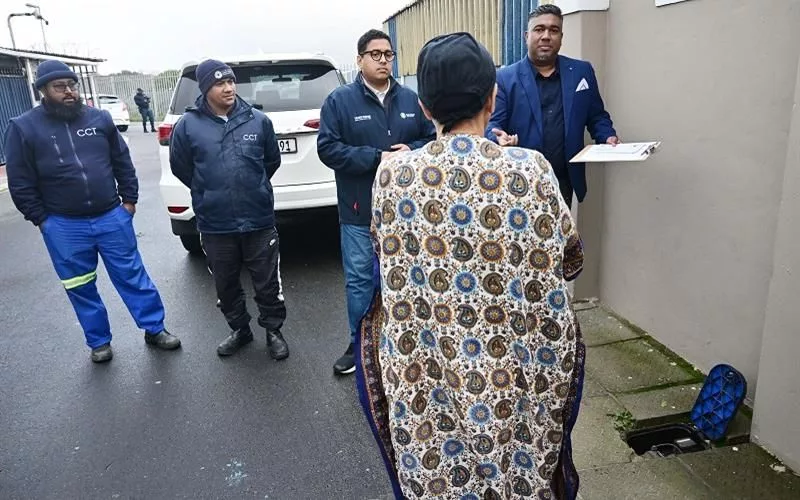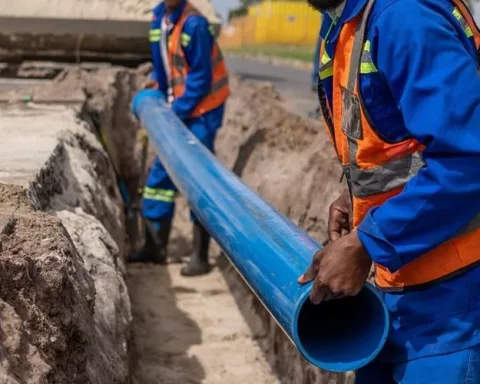The City of Cape Town provides monthly water allocations of 15,000 liters to registered indigent citizens in order to promote equal access to water resources. Responsible water consumption counseling is also provided to encourage judicious usage. The city maintains a zero-tolerance policy towards tampering and unauthorized interference with the water supply system. The city encourages property possessors with large households or health necessities to request an increased water allowance.
How does Cape Town ensure fair water distribution to indigent occupants?
The Water and Sanitation Directorate in the City of Cape Town provides a monthly water allocation of 15,000 liters to registered indigent citizens to promote equal access to water resources. Responsible water consumption counseling is also provided to encourage judicious usage. The city encourages property possessors with large households or health necessities to request an increased water allowance. The city maintains a zero-tolerance policy towards tampering and unauthorized interference with the water supply system.
In a concerted effort to promote equal access to water resources, the Water and Sanitation Directorate in the City of Cape Town has instated a policy providing a gratuitous monthly water dispensation of 15,000 litres (15kl) to registered indigent citizens. This policy encompasses roughly 230,225 property possessors in Cape Town who meet the indigent classification. The 15kl allocation also takes into account sanitation services, allowing for up to 10,500 litres of wastewater.
Responsible Water Consumption Counselling
The city, however, implores these beneficiaries to exhibit judicious water usage and strictly observe the pre-established limit. This counsel is rooted in disconcerting data gathered at the termination of June 2024, showing that 23.1% of the recipients surpassed the 15kl threshold, with usage skyrocketing to 40kl in certain situations.
The repercussions of overuse are significant. Cape Town has an orderly method in place to tackle excessive water consumption. A warning letter is expedited to the customer when household usage goes beyond the limit for two successive months, advising them to curtail their water use. Should the customer neglect this warning after the fourth consecutive exceeding month, a supply restriction ensues. This doesn’t denote a full discontinuation, but a reduced-pressure, dribbled provision.
Applying for Increased Water Allowance
To stave off potential restrictions, the city encourages property possessors to request an augmented water allowance at the City of Cape Town Municipal Walk-in centre. This proposal is applicable to households that house more than 10 residents or ones with particular health necessities.
Indigent consumers are also guided to promptly report any private leaks that might inflate usage. If the customer hasn’t previously taken advantage of the city’s Indigent Leak Repair Programme, the city will carry out the necessary repairs.
Between July 2023 and June 2024, the directorate dispensed warning letters to 47,816 indigent consumers for breaching their water limits. The city consequently put 21,579 of these customers on a regulated supply. High incident areas included Langa, Philippi (Brown’s Farm), Dunoon, Hanover Park, and Gugulethu.
Tampering and Illegal Reconnection Consequences
The city also grapples with a continuous problem concerning interference and unlawful reconnection of water supply. This often transpires when supply to a property has been curtailed because of unpaid bills, instigating illegal removal of the restriction or illegal establishment of a straight connection. There are also instances of meter tampering intended to manipulate or decrease meter readings.
When tampering is suspected on an indigent resident’s property, the city has established a procedure which comprises a meticulous investigation to validate the tampering, collection of evidence, repairing or replacing the meter if tampered with, issuing a notice of tampering to the property owner, and imposing a tampering fine of R5000 on the registered owner’s account.
This vigorous process seeks to moderate water usage by sanctioned indigent customers and promote responsible water consumption. The City maintains a zero-tolerance policy towards tampering and illicit reconnections. Councillor Zahid Badroodien, Cape Town’s Mayoral Committee Member for Water and Sanitation, highlights the significance of conserving water and responsibly utilizing allocations.
Once a restrictor disc is implanted into a meter, it provides a basic allocation of 6,000 litres per month, in compliance with South Africa’s National Water Standards. This disc remains in position for 12 months, after which the flow is reinstated to 15,000 litres per month. The City’s Water By-law (Section 19: Interference with the water supply system) fervently forbids any unauthorised interference or tampering with the city’s water supply infrastructure.
In summarising, water is a valuable resource that demands judicious use. By complying with the guidelines and legislations stipulated by the city, inhabitants can substantially contribute to water preservation initiatives and aid in securing Cape Town’s mutual water future.
1. What is the monthly water allocation for registered indigent citizens in Cape Town?
The City of Cape Town provides a monthly water allocation of 15,000 liters to registered indigent citizens to promote equal access to water resources.
2. How does Cape Town encourage responsible water consumption?
The city provides responsible water consumption counseling to indigent citizens to encourage judicious usage, and maintains a zero-tolerance policy towards tampering and unauthorized interference with the water supply system.
3. Can property possessors with large households or health necessities request an increased water allowance?
Yes, the city encourages property possessors with large households or health necessities to request an increased water allowance at the City of Cape Town Municipal Walk-in centre.
4. What happens if a household exceeds the 15,000-liter monthly water allocation?
If a household exceeds the 15,000-liter monthly water allocation for two successive months, the city will expedite a warning letter to the customer advising them to curtail their water use. If the customer neglects this warning after the fourth consecutive exceeding month, a supply restriction ensues.
5. How does Cape Town deal with tampering and unauthorized interference with the water supply system?
The city maintains a zero-tolerance policy towards tampering and unauthorized interference with the water supply system. When tampering is suspected, the city conducts an investigation, collects evidence, repairs or replaces the meter if tampered with, issues a notice of tampering to the property owner, and imposes a tampering fine of R5000 on the registered owner’s account.
6. What is the purpose of the restrictor disc in the meter and how long does it remain in place?
The restrictor disc provides a basic allocation of 6,000 liters per month in compliance with South Africa’s National Water Standards. It remains in place for 12 months, after which the flow is reinstated to 15,000 liters per month.









